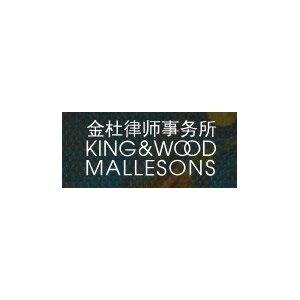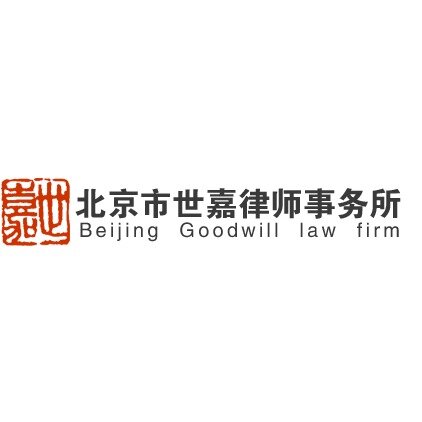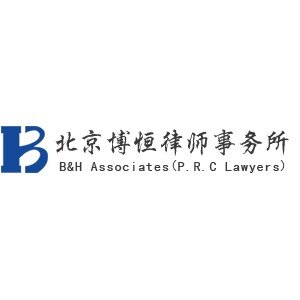Best Trademark Lawyers in China
Share your needs with us, get contacted by law firms.
Free. Takes 2 min.
Or refine your search by selecting a city:
List of the best lawyers in China
About Trademark Law in China
Trademark law in China is governed by the Chinese Trademark Law, which was enacted in 1982 and subsequently amended several times, with the most recent amendment taking place in 2019. The law is designed to protect the rights of trademark owners and ensure fair competition in the market. In China, trademarks can include words, designs, letters, numerals, three-dimensional signs, color combinations, sounds, and other elements that distinguish the goods or services of one enterprise from those of others. The China National Intellectual Property Administration (CNIPA) is responsible for the registration and management of trademarks.
Why You May Need a Lawyer
There are several situations in which you might need legal assistance with trademark matters in China:
- Registering a new trademark - navigating the application process can be complex.
- Dealing with trademark infringement - taking action if your trademark is used without permission.
- Opposing a trademark - if you believe a recently filed trademark affects your existing rights.
- Avoiding infringement - ensuring that your trademark does not infringe on others.
- Transferring trademark rights - complex legal documentation is required during sales or mergers.
Local Laws Overview
Several key aspects of Chinese trademark law are of particular importance:
- First-to-file Principle: China operates on a first-to-file basis, meaning that the person who registers a trademark first will typically be recognized as its legitimate owner.
- Classes of Goods and Services: Trademarks are registered under specific classes. It's crucial to ensure that your trademark is filed under the appropriate class.
- Use Requirements: A registered trademark must be actively used in China to be enforced against others.
- Validity Period: Registered trademarks in China are valid for ten years and can be renewed every ten years.
- Non-registrable Marks: Certain symbols or names cannot be registered as trademarks, including those that are generic, deceptive, or contrary to public morals.
Frequently Asked Questions
What is a trademark?
A trademark is a sign capable of distinguishing the goods or services of one enterprise from those of other enterprises in the market.
How do I apply for a trademark in China?
You can apply for a trademark registration through the China National Intellectual Property Administration (CNIPA) by submitting the required documents and paying the applicable fees.
Does China recognize international trademarks?
China is a member of the Madrid Protocol, allowing the international registration of trademarks. However, international registration does not automatically imply protection in China; a separate registration is still advisable.
How long does the trademark registration process take?
The entire registration process can take 6 to 18 months, depending on whether there are objections or challenges during the examination period.
What can I do if my trademark is being infringed in China?
If you suspect a trademark infringement, you can file a complaint with administrative authorities or pursue civil litigation to seek compensation or stop the infringement.
Can I transfer my trademark rights?
Yes, trademark rights can be transferred through a legal agreement, which must be recorded with CNIPA to be effective.
Is it necessary to use a trademark in China after registration?
Yes, trademarks must be used within three years of registration to avoid cancellation for non-use by third parties.
What is trademark squatting?
Trademark squatting refers to the preemptive registration of a famous or international trademark in China by an unauthorized party. It's crucial to register your trademark early to prevent this.
Can I oppose a trademark registration?
Yes, you can file an opposition within three months after the trademark is published in the Trademark Gazette if you believe it infringes on your rights.
How do I renew my trademark in China?
You must file a renewal application with the CNIPA within six months before the expiration of the trademark registration. Late renewal is possible within a six-month grace period with additional fees.
Additional Resources
For more assistance, consider reaching out to the following resources:
- China National Intellectual Property Administration (CNIPA)
- China Trademark Association
- China Intellectual Property Lawyers’ Association
- World Intellectual Property Organization (WIPO)
Next Steps
If you need further legal assistance regarding trademarks in China, consider the following steps:
- Consult with a lawyer who specializes in intellectual property and has experience with Chinese trademark law.
- Prepare all relevant documents and evidence of your trademark use in China.
- Consider filing for trademark registration if you haven’t already done so to protect your intellectual property.
- Stay informed about the latest updates and changes in Chinese trademark law through reliable sources and publications.
Lawzana helps you find the best lawyers and law firms in China through a curated and pre-screened list of qualified legal professionals. Our platform offers rankings and detailed profiles of attorneys and law firms, allowing you to compare based on practice areas, including Trademark, experience, and client feedback.
Each profile includes a description of the firm's areas of practice, client reviews, team members and partners, year of establishment, spoken languages, office locations, contact information, social media presence, and any published articles or resources. Most firms on our platform speak English and are experienced in both local and international legal matters.
Get a quote from top-rated law firms in China — quickly, securely, and without unnecessary hassle.
Disclaimer:
The information provided on this page is for general informational purposes only and does not constitute legal advice. While we strive to ensure the accuracy and relevance of the content, legal information may change over time, and interpretations of the law can vary. You should always consult with a qualified legal professional for advice specific to your situation.
We disclaim all liability for actions taken or not taken based on the content of this page. If you believe any information is incorrect or outdated, please contact us, and we will review and update it where appropriate.
Browse trademark law firms by city in China
Refine your search by selecting a city.













